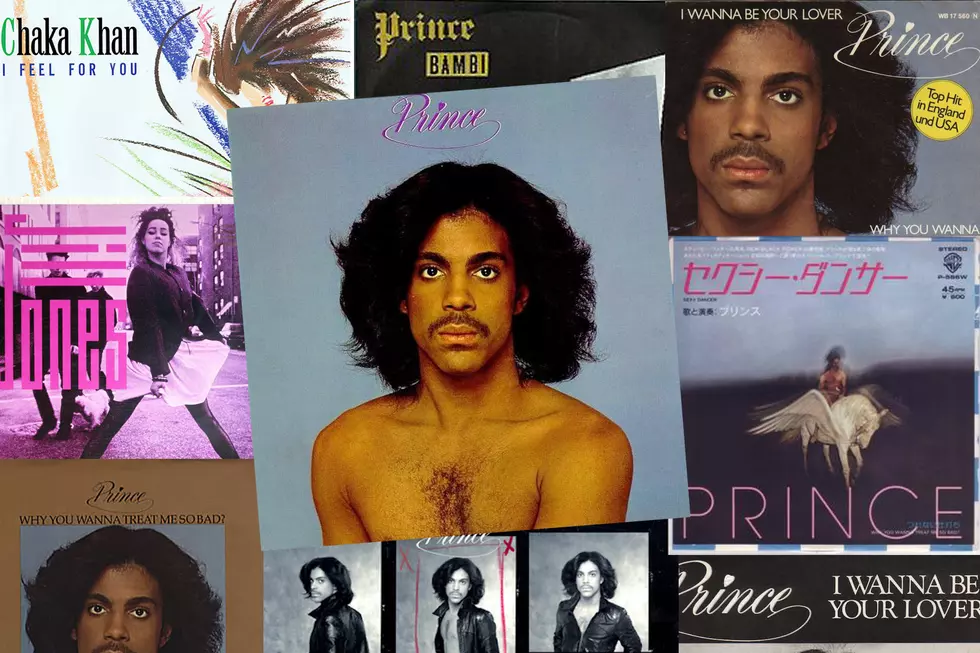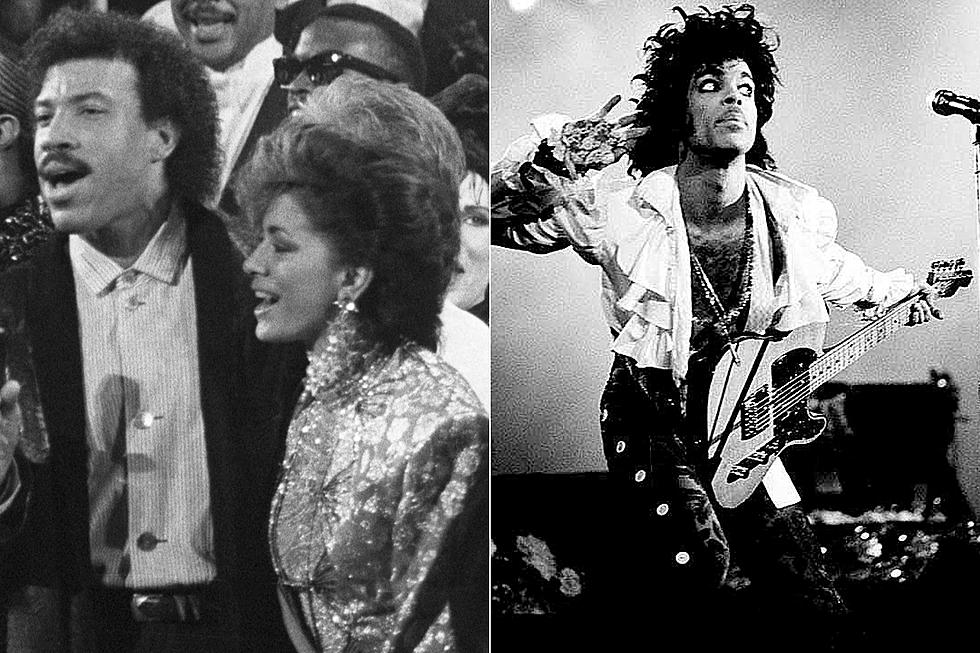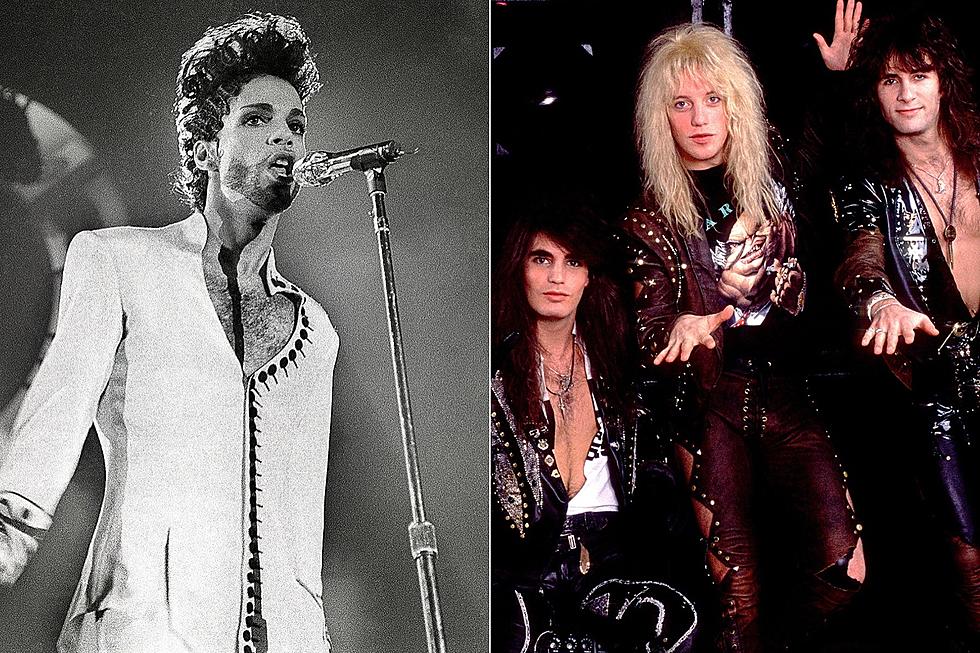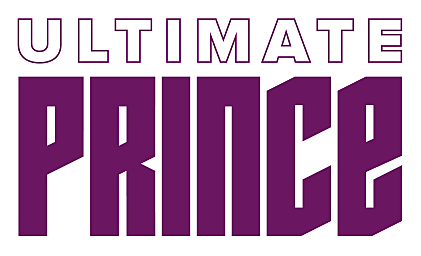
Prince’s ‘Prince': The Story Behind Every Song on His Second LP
Prince's self-titled second album found him expanding his sound in search of the mainstream success that his debut, For You, failed to secure.
Released on Oct. 19, 1979, Prince wouldn't be the album where he found his own unique voice and style -- that breakthrough arrived the following year with Dirty Mind. But even if he hadn't found a way to synthesize his influences into something new and truly unique yet, the barely 21-year-old one-man writing, performing and producing wizard continued to demonstrate an uncanny grasp on an increasing variety of musical styles.
Here's a quick look at every track on Prince's second album, and links to more in-depth explorations of seven of the songs.
"I Wanna Be Your Lover"
This was Prince's first big hit, missing the Top 10 on the Billboard pop chart by just one spot. The video took pains to hammer home the "one-man-band" message, showing Prince moving back and forth between every instrument used during the album's recording. After going way over-budget while recording 1978's For You, Prince was under pressure to deliver a big hit on a tight budget -- and he delivered. The back half of the six-minute song is entirely devoted to a lengthy instrumental coda -- easily trimmed for the pop radio edit, and perfect for keeping 12" remix loving disco fans on the dance floor at clubs.
Read More: Prince Gets an Unlikely Disco Smash With "I Wanna Be Your Lover"
"Why You Wanna Treat Me So Bad?"
In a clear sign that Prince wasn't going to be contained by the R&B chart, the second single from Prince added hefty doses of rock and new wave; an early example of the sound that he would eventually use to conquer the world on 1999 and Purple Rain. The only problem was that listeners weren't ready for this bold new direction quite yet. "Why You Wanna Treat Me So Bad?" became the first of nine straight singles to miss the Billboard Hot 100, a streak that wouldn't end until "Controversy" hit No. 70.
Read More: Prince Sets a New Course With "Why You Wanna Treat Me So Bad?"
"Sexy Dancer"
Despite only being released as a single overseas, “Sexy Dancer” received quite a bit of play in stateside dance clubs and on urban radio. It even earned a featured spot on Soul Train. The largely instrumental track features just one quick verse, instead dividing most of its time between an insistent chanting chorus, lots of panting and several displays of Prince's musicianship.
Read More: Prince Goes for Dance Club Glory on "Sexy Dancer"
"When We're Dancing Close and Slow"
A clever Reddit user may have stumbled onto Prince's inspiration for the title of this spare piano-based ballad. "I'm fairly certain it was influenced by a line in Joni Mitchell's 'Coyote,' from (1976's) Hejira album," they theorize. Indeed, her lyrics are a fit, if not the most unique words you've ever heard: "He drags me out on the dance floor / And we're dancing close and slow." Prince's love for Mitchell has been clearly established, as he name-checked her in "The Ballad of Dorothy Parker" and later covered "A Case of U."
Prince seemed to maintain a lasting affinity for "When We're Dancing Close and Slow," using it as the b-side of his "Dirty Mind" single the following year, and according to PrinceVault, bringing it back into his set list several times during his 2011, 2013 and 2014 tours.
"With You"
Another lovely if somewhat conventional ballad, "With You" kicks off Prince's second side and in 1987 was covered by Jill Jones for her own self-titled album. It's the only song on that record which doesn't feature Prince as the primary musician. Instead, an all-star studio musician group featuring drummer Steve Gadd, Billy Idol guitarist Steve Stevens, and Hugh McCracken performed on Jones' version of the track, which Prince remixed prior to its inclusion on her album.
"Bambi"
Five years before "Let's Go Crazy," Prince made his first, highly convincing claim for rock guitar god status with the most atypical track on his sophomore album. Dez Dickerson, Prince’s bandmate at the time, described the track as “a pure [Jimi] Hendrixian guitar-fest.”
It's also one of his more lyrically controversial songs, featuring a protagonist trying to convince a lesbian woman to sleep with him instead, insisting that "it's better with a man." Even after Prince jettisoned risque songs such as "Darling Nikki" from his set lists after becoming a Jehovah’s Witness, “Bambi” stayed in the lineup, original lyrics intact.
“He’s done ‘Bambi’ for years,” Prince’s former bassist Rhonda Smith said. “I think maybe he just likes the groove. … That’s probably more of an emotion thing.”
Read More: The Many Lives of Prince's "Bambi"
"Still Waiting"
When Prince sings about his broken heart on this bluesy piano ballad, he’s not doing it for show. The Purple One was inspired to write “Still Waiting” following one of his earliest break-ups.
The object of the singer’s affection was Kim Upsher, Prince’s high school girlfriend who had previously inspired one of his first student film projects. The two dated for several years, with Upsher even helping Prince decorate his first home. The relationship would eventually fall apart, with Prince later insinuating that his growing throngs of female fans may have played a role.
Though “Still Waiting” alludes to love lost, real-life was a little more kind. Prince and Upsher managed to remain friends throughout the rest of their lives.
Read More: "Still Waiting" Finds Prince Nursing His First Broken Heart
"I Feel For You"
Appearing here in its original form, “I Feel For You” features Prince singing in his falsetto over a disco-inspired track. Despite a buoyant groove and catchy chorus, this version was not released as a single. It wouldn’t be until five years later that the song earned the attention it deserved. Chaka Khan, the classic R&B singer whom Prince had long admired, released her own rendition of the tune in 1984. It became a worldwide hit and scored Prince a songwriting Grammy for Best R&B Song.
In 2019, Prince's acoustic demo version of the track was released as a stand-alone single to celebrate Prince's 40th anniversary.
Read More: How a Crush Eventually Led to Chaka Khan's Best-Known Hit
"It's Gonna Be Lonely"
Prince channeled his love of Philadelphia soul for the final cut of his self-titled LP. Another track mourning a breakup -- possibly the same one that inspired “Still Waiting” -- “It’s Gonna Be Lonely” found the singer’s high-pitched voice soaring above a luscious musical palette, featuring bass, drums, guitar and funked-out keyboard.
Read More: Prince Dishes Up Some Philly Soul on 'It's Gonna Be Lonely"
What Happened to the Artists of Paisley Park Records?
More From Ultimate Prince









